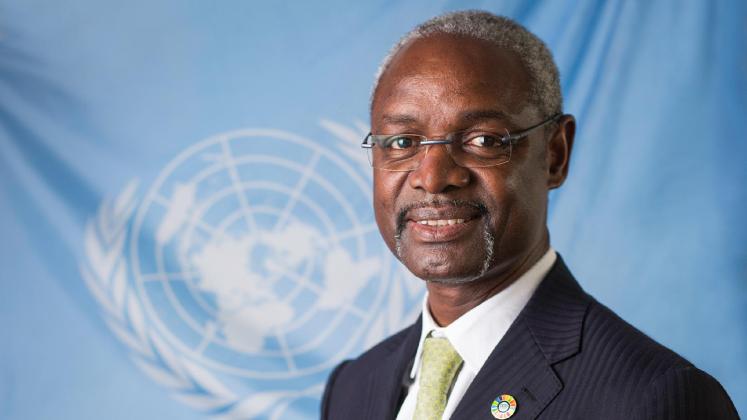On 20 February 2024, UNU will host “Healthy Land: Why Combating Desertification is Crucial for Human Security”, a conversation with Mr. Ibrahim Thiaw, Under-Secretary-General and Executive Secretary of the United Nations Convention to Combat Desertification (UNCCD). This event will start at 18:30 in the 2F Reception Hall at UNU Headquarters in Tokyo.
Loss of fertile land is one of the greatest challenges of our time. It has serious consequences worldwide for food security, ecological safety, poverty eradication and sustainable development. Land degradation, drought and water scarcity are among the biggest threats to global security.
According to the latest science, 3.2 billion people are affected by land degradation, a phenomenon that has engulfed 75% of all ice-free land and has made one out of four hectares totally unusable. According to the United Nations, if this trend continues, up to 90% of all ice-free land will be altered by human activities by 2050. Approximately 50 million people could be displaced from their homes by 2030 as a result of desertification.
The UN Convention to Combat Desertification (UNCCD) is the sole legally binding international agreement linking environment and development to sustainable land management and the problem of desertification.
Mr. Ibrahim Thiaw will join UNU Rector Tshilidzi Marwala for a conversation exploring the relationship between land degradation and issues of human security such as famine, conflicts and environmental crises, as well as the role of international cooperation and the UNCCD in combating desertification. How does climate change worsen the vulnerability of arid regions, particularly in Africa? What are the consequences of drought for food security? What role does sustainable land management play in reducing the potential for conflict in arid regions? What initiatives and strategies should governments, civil society, and local communities undertake to strengthen sustainable land management?
The UNU Conversation Series aims to foster audience participation; you are encouraged to engage with the speakers during the conversation and at the reception that will follow, where all event attendees are invited to enjoy hors d’oeuvres and drinks while exchanging ideas and making new contacts.
Please note that this event will be in English. Advance registration (by 19 February) is required. Please click on the REGISTER button above to access the online registration page.
Please be prepared to present identification at check-in.
About the speaker
Ibrahim Thiaw is Under-Secretary-General and Executive Secretary of the United Nations Convention to Combat Desertification (UNCCD) since February 2019.
Mr. Thiaw brings to the position 40 years of experience in sustainable development, environmental governance and natural resource management. In 2018, he was Special Adviser to the Secretary-General for the Sahel and supported ongoing efforts to advance the recalibration of the United Nations Integrated Strategy for the Sahel (UNISS) and the development of the UN Support Plan for the Sahel.
Prior to this position, from 2013 to 2018, he served as Assistant Secretary-General and Deputy Executive Director of the United Nations Environment Programme (UNEP), where he played a key role in shaping the organization's strategic vision and mandate, overseeing the development and implementation of the mid-term strategy and programme of work, and strengthening collaborations with Governments and other environmental governing bodies. Mr. Thiaw joined the United Nations in 2007 as Director of the UNEP Division for Environmental Policy Implementation.
Before joining the United Nations, he was the Regional Director for West Africa, and later Acting Director General, of the International Union for Conservation of Nature.
Mr. Thiaw started his career in Mauritania, his home country, where he served in the Ministry of Rural Development for 10 years. He holds an advanced degree in forestry and forest product techniques.






